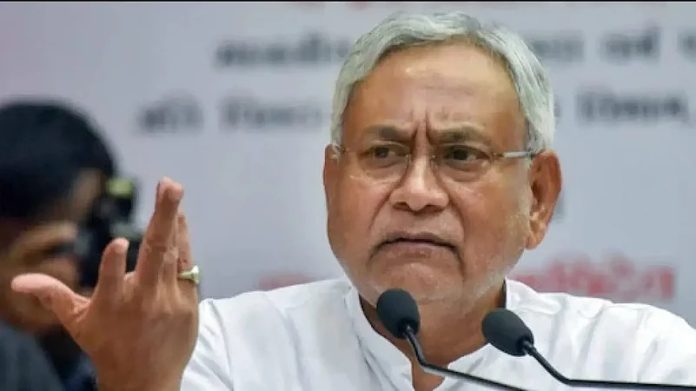PATNA – With the Bihar Assembly elections just two months away and the Model Code of Conduct expected to kick in soon, Chief Minister Nitish Kumar’s recent policy announcements have raised eyebrows across the political spectrum. Policies once rejected or ignored by his government are now being rolled out in rapid succession — a move that many see as an attempt to hijack the opposition’s agenda, particularly that of RJD leader Tejashwi Yadav.
On Monday, Nitish Kumar announced the implementation of a domicile policy for government jobs, reversing his long-standing opposition to the idea. This policy had been a key demand of Tejashwi Yadav and the Mahagathbandhan alliance (comprising the RJD, Congress, and Left parties). Notably, as recently as March, Nitish’s own party leaders had spoken against such a policy on the floor of the Assembly.
Political observers suggest that Nitish’s move is part of a larger strategy to stay electorally relevant, especially amidst growing concerns over his health and leadership capacity. Many believe that pressure from alliance partner BJP, which seems skeptical about Nitish’s traditional tactics, is also influencing these sudden shifts.
The hypocrisy is evident: BJP and JDU leaders who once labelled the domicile policy “childish” and “legally untenable” are now hailing it as visionary. Earlier, bureaucrats like Chief Secretary Amir Subhani had cited Article 16 of the Constitution, warning that such a policy could backfire by restricting job opportunities for Biharis in other states.
Tejashwi had also championed 200 units of free electricity—a move dismissed as “fiscally dangerous” by Nitish’s ministers. Yet, Nitish has now introduced 125 free units, with electricity bills prominently featuring his photograph and an SMS system notifying beneficiaries under the “Chief Minister’s Consumer Assistance Scheme.”
Similarly, following Tejashwi’s proposal for a Mai-Bahin Samman Yojana, Nitish’s government increased social security pensions from ₹400 to ₹1,100, transferring ₹1,227 crore to over 1.11 crore beneficiaries. Other recent handouts include increased pensions for journalists and higher stipends for contractual workers.
While the domicile policy was formally announced, questions remain about its scope. Initially introduced for women under the 35% reservation quota, it was tied to the fourth phase of teacher recruitment (TRE-4). It’s unclear whether the policy will apply to all government job categories.
Tejashwi, meanwhile, remains firm in demanding 100% domicile-based employment. On Monday, he remarked: “Let those in power tell the people how it feels to copy the opposition.” His consistent advocacy on these issues has forced the ruling party to act, albeit under electoral duress.
The roots of what many now call “agenda hijacking” trace back to the 2020 Assembly elections, where Tejashwi’s promise of 10 lakh government jobs gained immense popularity. While he didn’t form the government, his brief tenure as Deputy Chief Minister under Nitish’s Mahagathbandhan government in 2022 saw a surge in teacher recruitment drives.
After Nitish’s return to the BJP fold, Tejashwi claimed that the current administration continued the job creation momentum he initiated. Nitish’s subsequent announcements on jobs, pensions, and welfare schemes are widely seen as an effort to reclaim lost ground.
RJD leaders argue that while the government may copy their proposals, it lacks the political will and moral clarity to implement them effectively. They claim that these last-minute sops won’t translate into electoral advantage for the JDU-BJP alliance.
As the election draws closer, the political chessboard in Bihar is being reset. The battle for policy ownership between Nitish Kumar and Tejashwi Yadav has become central to the state’s political narrative. Whether Nitish’s recalibrated approach will succeed at the ballot box remains to be seen.




